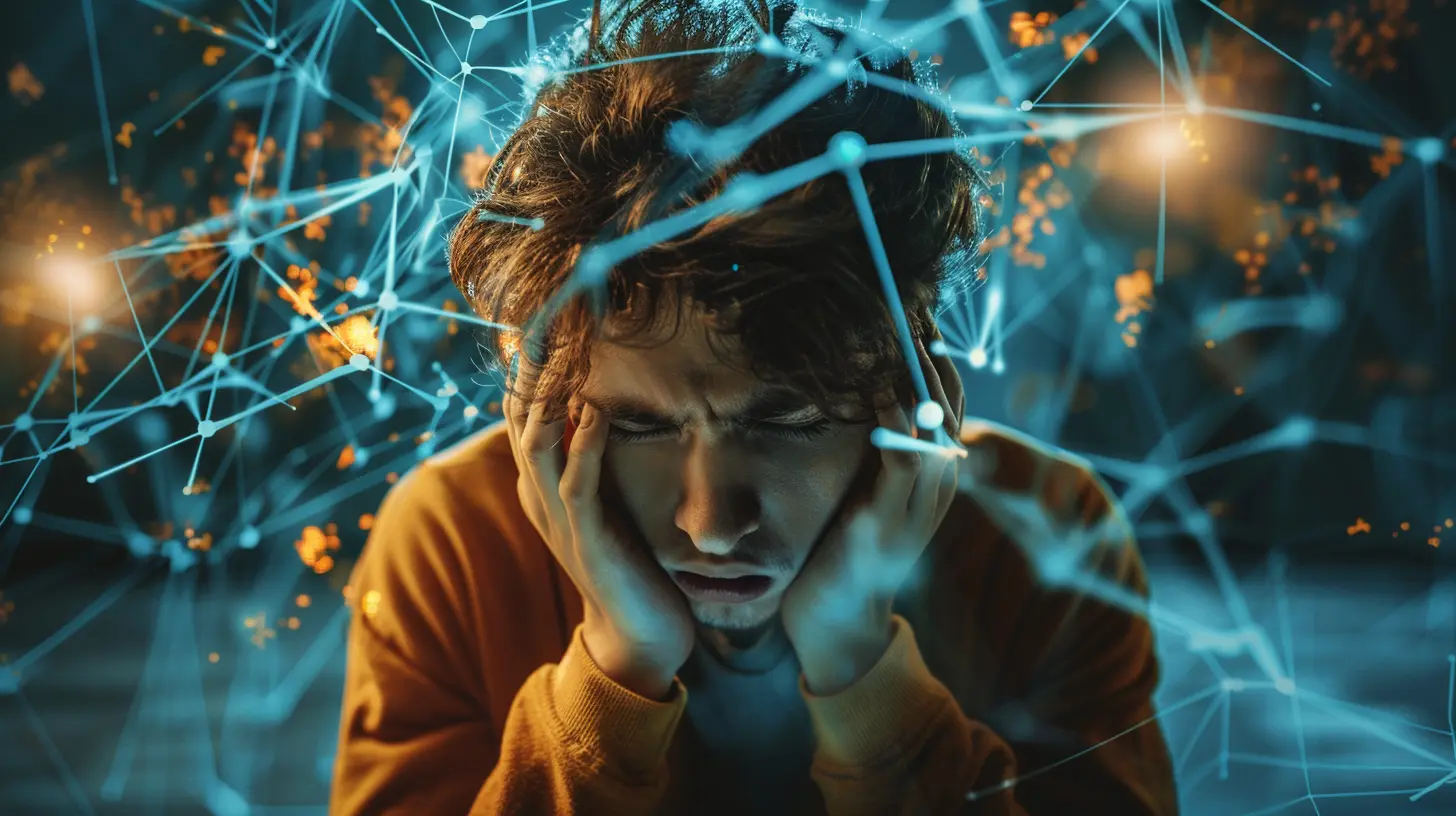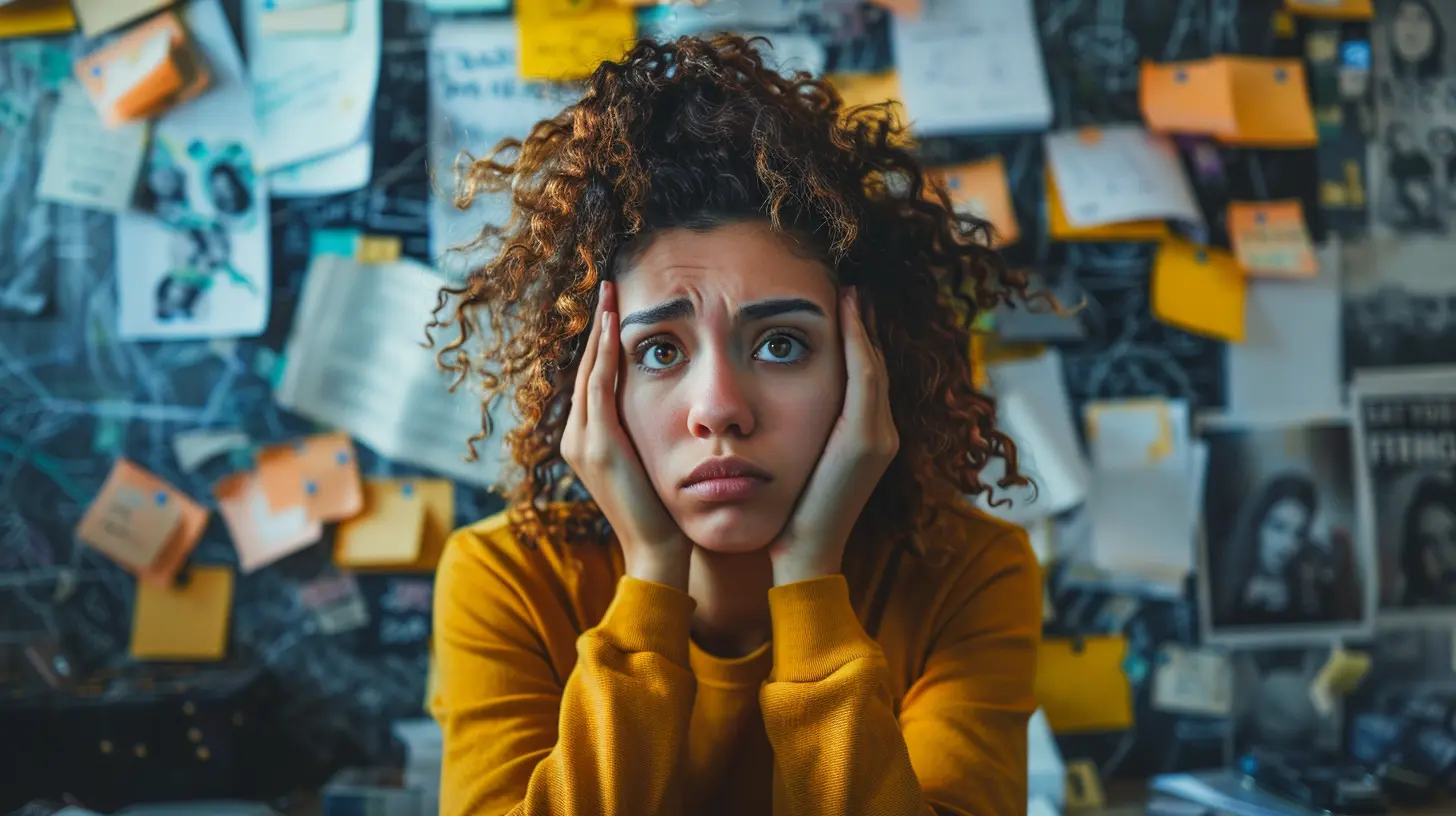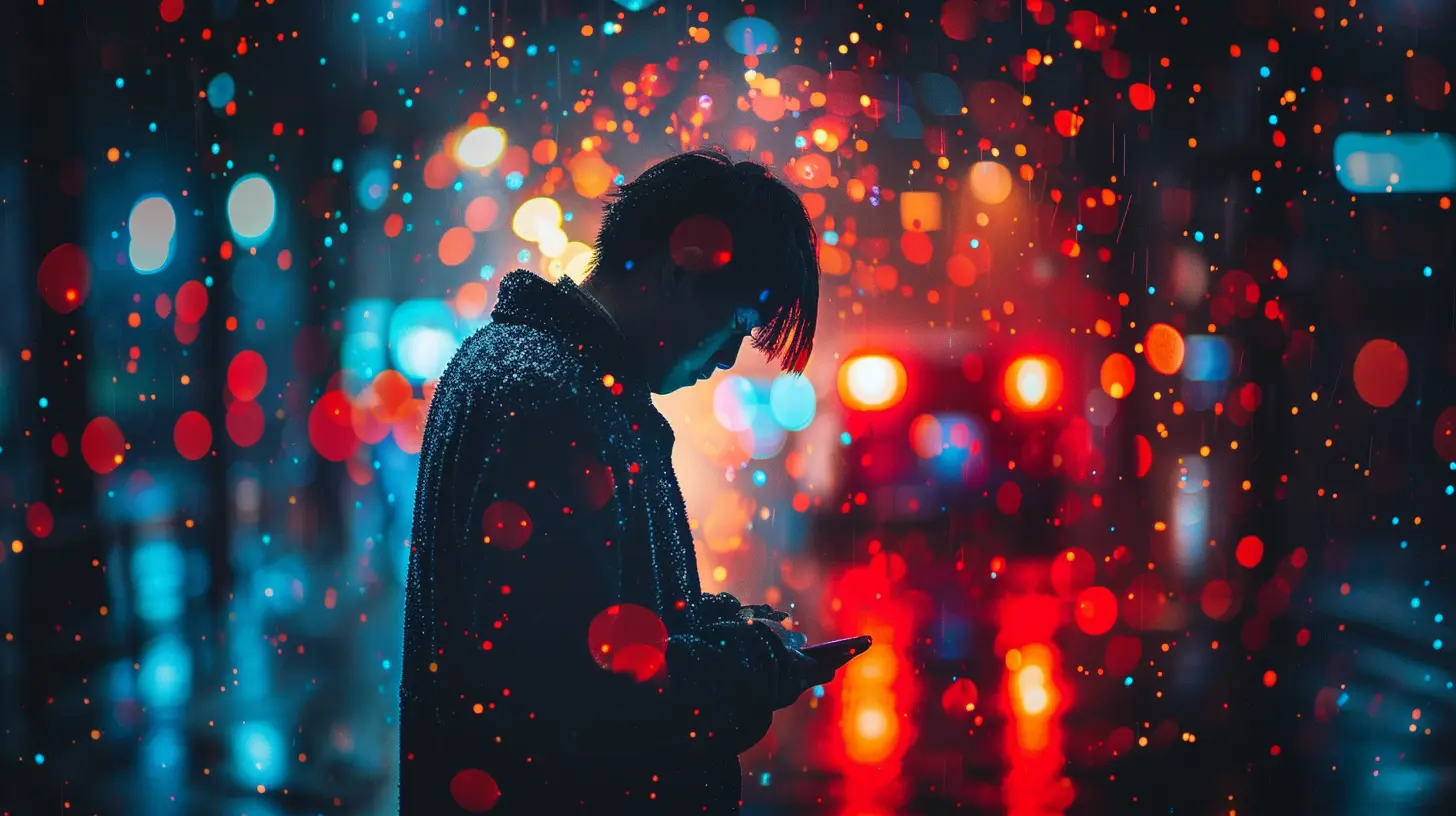Anxiety and Technology: How Social Media Affects Mental Health
8 October 2025
Let’s be real—our phones are basically glued to our hands, right? Between group chats, TikTok rabbit holes, and that endless scroll on Instagram, social media is a huge part of everyday life. It’s entertaining, sure, but it also comes with a price tag most of us didn't see coming: our mental health.
One minute you're watching a cute puppy video, and the next, you're spiraling because someone went on their fifth vacation this year while you’re still trying to make your bed consistently. And that, my friend, is exactly where technology and anxiety intersect in a very real, very messy way.
So buckle up, take that deep breath you’ve been forgetting to take, and let’s dive into the sometimes wacky, sometimes worrying world of social media and its effect on our mental health.
What Even Is Anxiety, Anyway?
Before we start pointing fingers at our phones, let’s understand what anxiety actually is.Anxiety isn’t just “worrying too much.” It’s a full-body experience. Your heart races, your thoughts spiral, and sometimes, your hands feel clammy like you’re about to give a TED Talk in front of an audience of thousands—even when you're just lying in bed.
It's your body's way of saying, “Hey, something's wrong,” even if nothing technically is. Now, mix in non-stop social media content, and it's like throwing gasoline on an already nervous fire.
The Social Media Feedback Loop (a.k.a. Staying Stuck in Scroll Mode)
Ever posted something and then checked your phone every three seconds for likes and comments? Yep, that little hit of dopamine is addictive. The pleasure-reward cycle in our brains lights up every time we get interaction. It feels good—for a minute.But here’s the twist: when the likes don’t roll in or someone leaves a judgmental comment, our brain reacts negatively. This push-pull dynamic creates a cycle that’s hard to shake. You seek validation, and when you don’t get it, you feel worse. That’s anxiety’s playground.
The Comparison Game: Spoiler Alert, You’re Always Losing
Social media is basically everyone’s highlight reel. You see vacation pics, career wins, perfectly posed selfies, and relationships that look like they belong in a Nicholas Sparks novel. What don’t you see? The bad days, the rejections, the tears cried over a sink full of dirty dishes.When you compare your behind-the-scenes life to someone else’s curated content, you’re bound to feel like you're not measuring up. That’s anxiety whispering, “Why aren’t you doing more? Being more? Looking more like that influencer with the six-pack and white teeth that sparkle like fresh snow?”
Spoiler alert: they probably Facetuned it. But your brain doesn’t know that.
The Rise of FOMO (Fear Of Missing Out)
Remember that weekend when you stayed in (finally!) to watch Netflix in your pajamas—and then saw your entire feed filled with people out at a rooftop party, having the time of their lives?Cue the FOMO.
It’s not just a buzzword; it’s a real anxiety trigger. Social media makes it easy to feel like you’re constantly missing out, even when your choice to stay in was what you actually wanted. The result? Regret, unease, and, yep, more anxiety.
Doomscrolling: The Anxiety Buffet No One Asked For
We’ve all done it. One minute you're checking Twitter (or X, or whatever it's called now), and the next you’ve fallen into a black hole of sad news, political outrage, and terrifying climate change headlines.That, dear reader, is doomscrolling—a term that sounds dramatic but is unfortunately all too real. Your brain takes in this nonstop negativity without having time to process or recover. It's like feeding your mind junk food for hours and then wondering why you feel queasy.
Notifications: The Little Monsters That Hijack Your Mood
Ping! Did you feel a tiny jolt of anticipation just reading that sound?Notifications act like tiny adrenaline shots. They steal your attention, disrupt your peace, and trick your brain into thinking something urgent is happening, even when it’s just someone liking your meme from two days ago.
These constant interruptions can spike anxiety and prevent you from relaxing, even when you’re off the clock. You’re not imagining it—your phone really is stressing you out.
The Pressure to Be Perfect
Let’s talk filters. Not the fun ones that give you puppy ears—but the ones we use to make our lives look flawless. Social media creates a pressure to always look good, be funny, be “on brand,” and never show weakness.This constant pressure to perform takes a serious toll on your mental well-being. It makes vulnerability feel risky and reinforces the idea that being “good enough” means being better than everyone else. Classic anxiety bait.
Is Social Media All Bad? Not Exactly…
Okay, before we throw our phones into the ocean, let’s be fair. Social media isn’t all doom and gloom. It can connect us, inspire us, and even provide important mental health resources. Seriously, #MentalHealthAwareness has done so much good by normalizing the very conversations we’re having right now.The key is knowing how to use it mindfully—and not letting it use you.
How to Protect Your Mental Health in a Hyperconnected World
You don’t have to quit social media cold turkey (although a digital detox now and then? Highly recommended). But there are ways to control your feed so it doesn’t control you.1. Curate Your Feed Like a Digital Garden
Unfollow accounts that make you feel less-than. You don’t owe anyone your mental peace. Follow people who inspire you, make you laugh, or make you think without making you feel bad about yourself.Think of your feed like a garden. You wouldn’t let weeds take over, right? So why let toxic content do the same?
2. Set Time Limits (And Actually Stick to Them)
Apps like Instagram and TikTok now let you set daily limits. Use them. Respect them. It’s like budgeting your time so you don’t end up with a hangover of anxiety after a 3-hour scroll session.3. Take Digital Detox Days
Pick one day a week to log off. Like a “mental spa day” for your brain. No scrolling, no posting, just real-life living. It’s weird at first, but your mind will thank you.4. Mute Notifications
This one is a game-changer. Turn off non-essential notifications. That way, your phone stops acting like an overexcited toddler constantly screaming, “Look at me! Look at me!”5. Practice Mindful Scrolling
Ask yourself, “Why am I opening this app right now?” Boredom? Habit? Avoidance? Being aware of your WHY can help you rewire your behavior over time.6. Talk About It
If social media is making you feel anxious, talk to someone about it. A friend, a therapist, your cat—okay, maybe not your cat. But don’t keep it bottled up.Emerging Tech and the Future of Mental Health
Good news: not all tech is the villain in this story. The use of mental health apps, online therapy sessions, mindfulness podcasts, and supportive online communities can give you tools to manage your anxiety in healthier ways.AI even helps some mental health platforms to personalize support based on mood tracking. So maybe, just maybe, technology can be the hero and the villain—like Batman, but with fewer gadgets and more guided meditations.
Final Thoughts: Balance Is the Name of the Game
At the end of the day, social media is a tool. Whether it becomes something that supports or stresses you depends entirely on how you use it. Anxiety and technology are entangled, no doubt, but they don’t have to be enemies.So next time you catch yourself doomscrolling or stress-refreshing your feed, take a beat. Breathe. Remind yourself that what you see online is only part of the story. The real, messy, beautiful life you’re living? That’s where the magic is.
And hey—don’t forget to go touch some grass now and then.
all images in this post were generated using AI tools
Category:
AnxietyAuthor:

Matilda Whitley
Discussion
rate this article
1 comments
Layne Pope
In a world where screens dominate, our minds dance between connection and chaos. Could the scroll bring solace or amplify our fears? As we navigate this digital labyrinth, what hidden shadows of anxiety lurk behind the curated facades? The truth may be just a click away.
October 8, 2025 at 3:22 PM

Matilda Whitley
Thank you for your insightful comment! Indeed, while social media can foster connection, it often exacerbates anxiety by creating unrealistic comparisons and a constant need for validation. Balancing digital interactions with real-life connections is essential for mental well-being.


